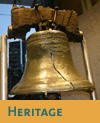Michael E. Hoffman: In Remembrance
We offer excerpts from the eloquent, affectionate remembrance of Michael by his valued friend and collaborator of many years, Mark Haworth-Booth, Curator of Photographs at the Victoria & Albert Museum, London.
Michael E. Hoffman was a brave, bold, and occasionally bloody-minded photography publisher. He directed Aperture, the magazine and book imprint based in New York. He was also curator of photography for many years at the Philadelphia Museum of Art and the friend, champion and later executor of the great American photographer Paul Strand.
Hoffman moved mountains to create marvelous publications – over 450 books and exhibition catalogs, plus more than 100 issues of the magazine… He was driven and visionary. He delighted and infuriated the readers of his publications and the visitors to his elegant and original exhibitions. He changed the cultural landscape and many lives for the better.
…he found his mission when he began to study with Minor White, Professor of Photography at Rochester Institute of Technology, in 1962. He enormously admired - and in turn emulated - White's spiritual gifts, intellectual originality, and visual subtlety. They worked closely together until the photographer's death in 1976.
Minor White had founded Aperture with Ansel Adams, Dorothea Lange, Beaumont and Nancy Newhall, and others in 1952. The magazine existed, they wrote, "to communicate with serious photographers and creative people everywhere." Under Hoffman's leadership, the magazine, which had actually ceased publication in 1964 with $25,000 in debts, was not only revived, but transformed into the world's most visually stunning and editorially creative photographic magazine.
The books began in the year Hoffman became Aperture's Executive Director, 1965, with Edward Weston: The Flame of Recognition.… Even more important was the monograph Diane Arbus, published in association with the Museum of Modern Art, New York, in 1972. Arbus had committed suicide the previous year.
John Szarkowski, the Museum of Modern Art's director of photography at the time, recalls that, four months before the show was due to open in December 1972, there seemed no possibility of getting a book published. The work had no takers among the publishers on Madison Avenue, or in Europe. Szarkowski reflected gloomily that, if a book could not be published for a memorial exhibition at the Museum of Modern Art, would a book of Arbus's startlingly original photographs ever see the light of day? He happened to mention the problem to Hoffman, showed him the photographs, and saw the young publisher set to work, producing in time for the show one of the greatest – and most influential – of all photographic books. Looking back on this saga, Szarkowski remarked: "No one was a villain – Michael was a hero."
…Hoffman worked with many gifted colleagues – but came with a health warning. He was difficult, people sighed. No doubt it was true, but if some found him bruising, others discovered the kind of publisher you dream about, and a valiant friend.
…(he) published The Golden Age of British Photography, 1839-1900 in 1984. …doing justice to Victorian photographs for the first time.
Michael Hoffman produced books ranging from the pioneering French Primitive Photography in 1969 to the monumental two-volume Strand retrospective in 1972 (Paul Strand: A Retrospective 1915-1968), to affordable collections of the greats, to the radical landscapes and luminous writings of Robert Adams, to edgy books like Nan Goldin's The Ballad of Sexual Dependency (1989), Sally Mann's Immediate Family (1992), Nick Waplington's Living Room (1991), and classics by Robert Frank, Josef Koudelka, Sebastiao Salgado – the list is long and pretty much global.
Hoffman said that he was becoming a curmudgeon, but he remained open and energetic, in 1998 renewed and fulfilled by his marriage to Melissa Harris. Stockily built, always loaded down by books in dummy or proof on his trips to London, Frankfurt, and Paris, he was a witty and engaging companion. I liked and admired him from the beginning but much, much more by the end - which has come too suddenly and too brutally soon.
This tribute was reproduced in Aperture's 50th Anniversary Issue, No. 167, by permission from the Independent of London, where it was originally published on December 5, 2001.






